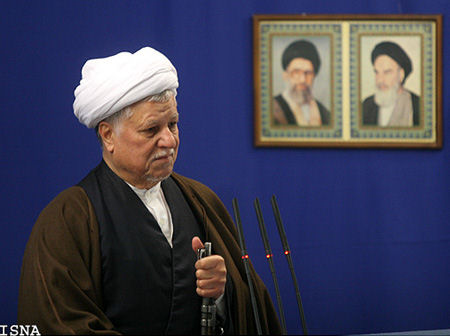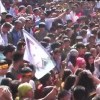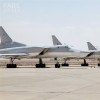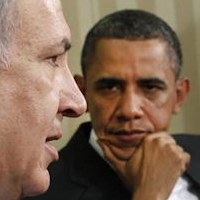![]()
Sun, Jan 8, 2012
Iran: Rafsanjani’s official website blocked — another stage in his exclusion from politics
Originally published in the Meir Amit Intelligence and Terrorism Information Center’s bulletin number 149.
The official website of Expediency Discernment Council Chairman Ayatollah Ali Akbar Hashemi Rafsanjani was blocked by the authorities last weekend. In an interview given to ILNA News Agency, Rafsanjani’s brother Mohammad Hashemi confirmed the reports about the blocking of the website, and said that it was blocked after the website administrator refused to comply with the authorities’ demand to take down the last Friday sermon delivered by Rafsanjani after the presidential elections in the summer of 2009. In the sermon, the former president expressed his doubts about the election results and called for the release of the political prisoners detained in the wave of riots that broke out after the elections. Criticism voiced by regime supporters against Rafsanjani increased following the sermon. Since then the Expediency Council chairman no longer delivers Friday sermons in Tehran.
Mohammad Hashemi noted that the demand to remove Rafsanjani’s last sermons from his official website and to “purify the website” had been relayed to the website administrator in an e-mail sent on behalf of the team in charge of monitoring websites. He defined the demand as illegal and surprising (ILNA, December 30).
The conservative daily Resalat claimed earlier this week that Mohammad Hashemi’s remarks are baseless, and that the real reason the website was blocked was that some of Rafsanjani’s memoirs from the 1980s had been published contrary to the decisions of the Supreme National Security Council (Resalat, January 1).
The conservative website Bibak applauded the blocking of Rafsanjani’s website, saying that in recent months the website attempted to sow discord in the conservative camp and even brought up doubts about the fairness of the coming Majles elections. Bibak condemned Rafsanjani’s conduct in the 2009 elections and the riots which broke out afterwards, saying that the authorities’ decision to block his official website is justified, similarly to the decisions to block the websites of the British embassy and the virtual U.S. embassy in Tehran. The website also accused Rafsanjani’s brother Mohammad Hashemi of serving the interests of the regime’s enemies ahead of the Majles elections (Bibak, December 29).
The conservatives’ efforts to smear Rafsanjani could also be seen in an interview with top reformist intellectual Prof. Sadeq Zibakalam published this week by Fars News Agency. In the interview, Zibakalam was asked to address Rafsanjani’s position on the reformist faction’s participation in the coming Majles elections. The Tehran University intellectual said that, in his view, Rafsanjani is against participating in the Majles elections since the demands he brought up to solve the political crisis that broke out after the 2009 presidential elections have not been met. He added that, like top reformists Mehdi Karoubi and Mohammad Khatami, Rafsanjani also announced that he has no intention of presenting his own list of preferred candidates for the coming Majles elections, and that no “true” reformist group has announced that it is going to run in the elections (Fars, December 31).
The day after the interview, the news agency issued a clarification stating that, following a request Zibakalam received from Rafsanjani’s office, he would like to stress that his discussion of Rafsanjani’s position on taking part in the elections reflects just his own personal speculations (Fars, January 1)
The blocking of Rafsanjani’s official website is yet another expression of his ongoing exclusion from political life. The political rift between him and the regime widened since the presidential elections in the summer of 2009. His critics claimed that he did not unequivocally side with the Supreme Leader and the regime in their fight against the reformist opposition, and even collaborated with its leaders before the elections and during the riots that broke out afterwards. The conservative media also accused Rafsanjani and his relatives in involvement in corruption.
His status in the Assembly of Experts, which he had chaired, was eroding as well, and in March 2011 the assembly chose Mohammad-Reza Mahdavi Kani to replace him as chairman. In recent months there have been more and more speculations that he will soon be dismissed from his position as chairman of the Expediency Discernment Council, a title he has held since 1989, in the coming round of appointments.
Meanwhile, Rafsanjani’s daughter, Faezeh Hashemi, was sentenced this week to six months in prison on charges of “propaganda against the regime”. In addition, the Revolutionary Court in Tehran prohibited her from taking part in any political, cultural, or media-related activity for the next five years. Faezeh Hashemi was brought to trial after giving a number of interviews to the press in which she strongly criticized the regime’s conduct after the last presidential elections. The former president’s daughter also took part in the riots which broke out in Iran in the summer of 2009 and was even arrested at that time.



 RSS
RSS











Iran: Rafsanjani’s official website blocked — another stage in his exclusion from politics | Middle. http://t.co/LhiAlTue
Iran: Rafsanjani’s official website blocked — another stage in his exclusion from politics | Middle. http://t.co/LhiAlTue